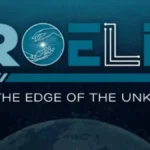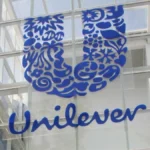In public relations, “spin doctor” often comes with a negative connotation, implying deceitful tactics. But in reality, PR is about crafting authentic, compelling narratives that connect with audiences. Spin, when done ethically, doesn’t distort the truth—it amplifies what matters most.
Ethical Spin: Owning the Narrative
Let’s take Zomato’s pure veg controversy as an example. When the brand faced criticism for labeling some restaurants as “pure veg” in its app, it sparked outrage among a segment of its customer base. Instead of dismissing the feedback, Zomato took a bold stance. They publicly emphasized their commitment to offering diverse dining choices while respecting user preferences. Their response, encapsulated in the now-famous line, “Food doesn’t have a religion. It is a religion,” turned a heated controversy into a conversation about inclusivity. By sticking to their core values, Zomato reinforced their brand ethos while addressing consumer concerns head-on.
Another shining example is Amul, which has consistently used its “Amul Girl” campaign to address real-time issues with a humorous spin. During the butter price hike, Amul didn’t shy away from the issue. Instead, they ran a witty campaign, explaining the increase while reinforcing the message that quality comes at a price. This transparent yet light-hearted approach turned a potential backlash into widespread appreciation.
When Spin Goes Wrong
Contrast this with Nestlé India’s Maggi controversy in 2015. When the brand faced allegations of excess lead content, their initial response was to downplay the seriousness of the claims. The lack of immediate transparency and accountability fueled public mistrust, leading to a temporary ban and a prolonged PR crisis. It took a significant rebranding and transparency campaign to rebuild their reputation.
Another example is the handling of a crisis by an Indian ride-hailing service. When reports of safety incidents surfaced, their PR response seemed more focused on minimizing the issue rather than addressing it directly. This defensive spin strategy led to eroded public trust and a barrage of negative media coverage.
Why Transparency is the Best Spin
Brands that lean into transparency often emerge stronger. Tata Motors faced early skepticism when launching their electric vehicles. Rather than glossing over concerns, they focused on real customer stories, highlighting long-term savings and environmental benefits. This honest narrative helped position them as a trusted leader in the EV space.
Similarly, during the pandemic, Parle-G leveraged its iconic status to remind consumers of its role as a comfort food in tough times. Their campaign resonated deeply, strengthening consumer loyalty during an uncertain period.
Redefining Spin for Good
When brands are accused of “spinning,” they have a choice: deny and deflect or lean in and redefine. Ethical spin isn’t about misrepresentation—it’s about shining a light on the most relevant and impactful parts of a story.
The lesson? Whether dealing with controversy or highlighting achievements, spin with integrity. Ethical storytelling not only wins hearts but also builds lasting trust in a world craving authenticity.

















